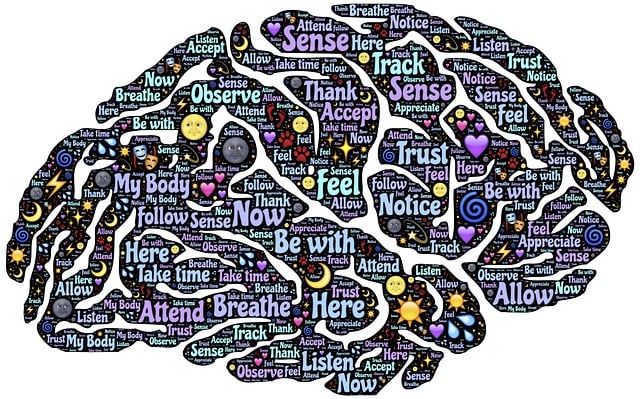The text highlights the challenges of mental illness diagnosis due to symptom overlap and cultural influences, emphasizing the need for culturally sensitive care. Longmont French Speaking Therapy emerges as a solution, offering tailored services for French-speaking individuals to improve diagnostic accuracy. This approach includes coaching programs, burnout prevention, and community outreach to enhance mental health literacy. By addressing cultural barriers and personal biases, they ensure safer spaces for clients to express their struggles, leading to more precise diagnoses and effective treatment plans. Misdiagnosis risks include delayed treatment and adverse effects, making culturally competent services like Longmont French Speaking Therapy crucial for diverse communities.
Mental illness diagnosis accuracy is a critical aspect of healthcare, with significant implications for patient care and outcomes. Despite advances in psychiatry, challenges remain, as current practices often fall short, impacting treatment effectiveness. This article explores these limitations and introduces innovative solutions to enhance diagnostic accuracy. We delve into the unique approach of Longmont French Speaking Therapy, highlighting cultural sensitivity as a key factor, and discuss cutting-edge tools such as AI-driven assessments. Additionally, we emphasize the importance of training and education in empowering mental health professionals to deliver precise diagnoses.
- The Current State of Mental Illness Diagnosis Accuracy
- – Exploring the challenges and limitations in current diagnostic practices.
- – Statistics and impact on patient care and outcomes.
- Longmont French Speaking Therapy: A Cultural Approach to Diagnosis
The Current State of Mental Illness Diagnosis Accuracy

The current state of mental illness diagnosis accuracy is a cause for concern. Despite advances in research and an increasing awareness of mental health issues, misdiagnoses remain prevalent. This is partly due to the complexity of mental wellness, with symptoms often overlapping across various disorders. For instance, depression can present similarly to anxiety, making it challenging for even seasoned professionals to distinguish between the two without a thorough understanding of the patient’s unique experience and context. Longmont French Speaking Therapy plays a vital role in this landscape by offering specialized services tailored to individuals who speak French as their first language. This ensures accurate diagnoses and culturally sensitive care.
Efforts to enhance diagnosis accuracy are multifaceted. The development of Mental Wellness Coaching Programs can empower individuals to recognize early warning signs and seek appropriate help. Additionally, Burnout Prevention Strategies for Healthcare Providers are crucial to maintaining the quality of care, as fatigued professionals may introduce biases that affect diagnosis. Community Outreach Program Implementation also contributes by increasing mental health literacy among diverse populations, reducing stigma, and encouraging earlier intervention. These strategies collectively aim to navigate the labyrinthine landscape of mental illness diagnosis, ensuring more accurate and timely interventions for those in need.
– Exploring the challenges and limitations in current diagnostic practices.

The current diagnostic practices for mental illness often face significant challenges, particularly when it comes to accurately identifying and differentiating various conditions. One of the primary limitations is the reliance on self-reported symptoms, which can be influenced by personal biases and cultural factors. Additionally, many individuals struggle to articulate their experiences, leading to misdiagnoses or delayed treatment. The complexity of mental health issues further complicates matters, as symptoms can overlap between disorders, making differentiation a nuanced task.
Longmont French Speaking Therapy plays a crucial role in addressing these challenges by offering culturally sensitive approaches. Therapists trained in French-speaking practices can create safer spaces for clients to open up about their struggles, enhancing the accuracy of initial assessments. Incorporating techniques like emotional regulation through mindfulness meditation and empathy building strategies has proven effective in improving diagnostic precision. By integrating diverse therapeutic methods, mental health professionals can better navigate these complexities, ultimately leading to more tailored and successful treatment plans.
– Statistics and impact on patient care and outcomes.

Mental illness diagnoses are often complex, and misdiagnosis can significantly impact patient care and outcomes. According to recent studies, nearly 30% of patients with mental health conditions receive an incorrect initial diagnosis, leading to delayed or inappropriate treatment. This is particularly concerning in diverse communities, such as Longmont’s French-speaking population, where access to culturally competent mental health services might be limited. Accurate diagnoses are crucial for effective long-term management and improved patient outcomes.
The consequences of misdiagnosis can be severe. Inaccurate treatments may not address the underlying condition, leading to persistence or exacerbation of symptoms. Additionally, it can cause emotional distress, hinder recovery, and even lead to adverse effects from inappropriate medications. Public Awareness Campaigns Development plays a vital role in educating both patients and healthcare providers about mental health, encouraging early recognition of symptoms, and promoting evidence-based practices. Enhancing Mood Management and Emotional Regulation techniques through therapy, for example, French Speaking Therapy in Longmont, can empower individuals to navigate their mental health journeys effectively and ensure more precise diagnoses and treatment plans.
Longmont French Speaking Therapy: A Cultural Approach to Diagnosis

In Longmont, French-speaking therapy has emerged as a culturally sensitive approach to mental health diagnosis and treatment. This innovative practice recognizes the significant impact of cultural background on an individual’s mental wellness. By offering services in French, therapists create a safe and familiar environment for patients who may face language barriers or feel more comfortable expressing themselves in their native tongue. Such an inclusive approach not only enhances the accuracy of diagnoses but also encourages open communication, which is crucial for effective therapy.
The Longmont French-speaking therapy goes beyond translation; it integrates cultural aspects into coping skills development. Therapists are trained to understand and appreciate the unique perspectives and experiences shaped by cultural identity. This cultural competence enables therapists to produce tailored treatment plans that address specific mental health challenges within the context of each patient’s background, thereby fostering improved mental wellness outcomes, as highlighted in the Mental Wellness Podcast Series Production.
Mental illness diagnosis accuracy is a critical aspect of patient care, directly impacting treatment outcomes. The current state of practice reveals significant challenges and limitations, as highlighted in this article. To improve diagnostic accuracy, adopting innovative approaches like the Longmont French Speaking Therapy, which considers cultural nuances, can be transformative. By addressing these issues head-on, healthcare professionals can ensure more effective, culturally sensitive, and ultimately, successful patient outcomes.














